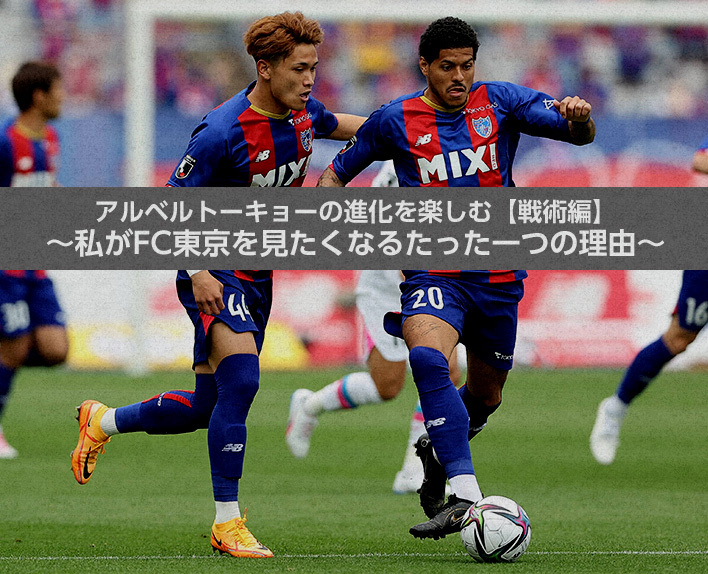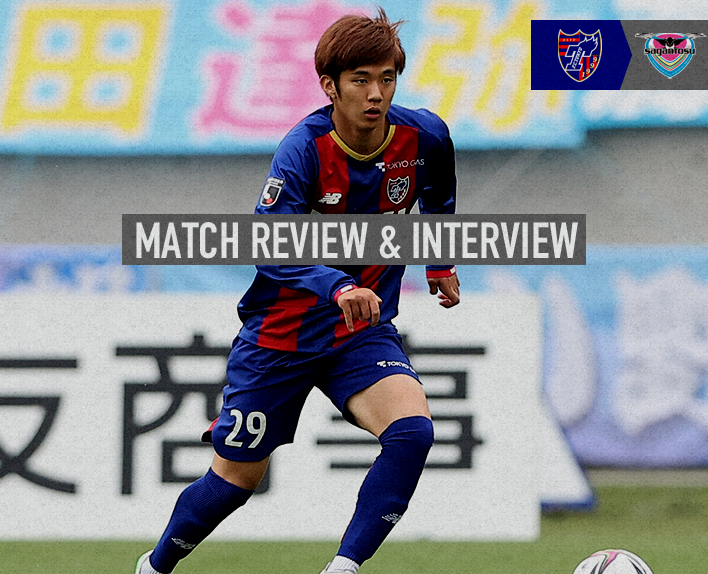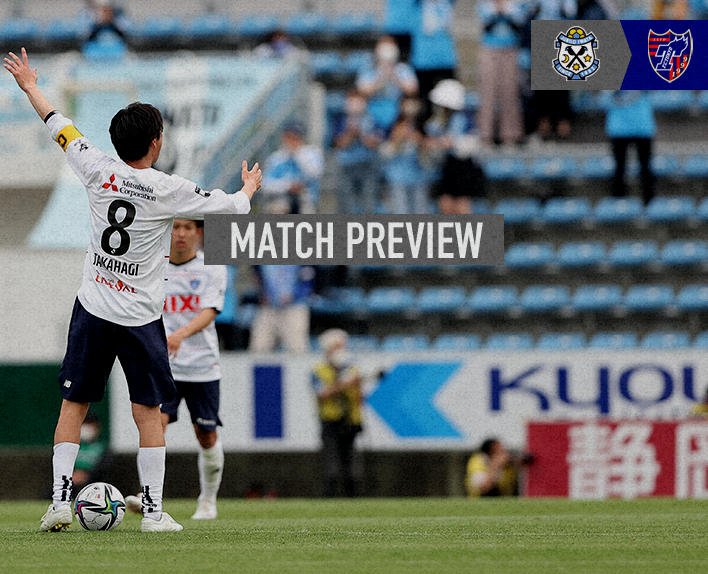Enjoying the evolution of Albert Tokyo [Tactical Edition]
~ The only reason I want to see FC Tokyo ~
I don't understand positional play!
Hypothesis of Trust
"Do you know how many years Jürgen Klopp, one of the greatest managers in the world, has been leading Liverpool FC?"
What Albert PUIG ORTONEDA, the coach, is asking is what does he want to say, even Jurgen KLOPP needs time to build a team, so "well, wait" is what he says. After making you wait, he is confident.
There are many reasons why I want to see FC Tokyo now... but for me, it all comes down to one thing. Goals.
By the way, it seems that a wonderful culture of showing respect for the already published columns has emerged in this "FANZONE," and I was particularly impressed by Kohei Baba's "Unraveling Albert PUIG ORTONEDA's Positional Play through the Testimonies of Three Midfield Players". There was a line quoted from a movie that was written down.
"Tactics are born from excellent positioning."
If placement creates tactics, could our physical and conceptual position as spectators also provide us with a strategy to reach victory through understanding?
I will write with the intention of creating a text that will be helpful (or not at all, but can provide a certain kind of indication) as I write.
Well, I don't understand "positional play". Just when I thought I was starting to understand, new elements are added and it feels like it's constantly changing.
What I don't understand is also a source of learning, and because I have a stubborn personality, not limited to positional play, I take a lot of time to decide whether to trust someone who says "I understand" or not. In the world, often those who say they understand and those who have a loud voice tend to be praised, but I seem to trust the "knowledge of ignorance" that admits not understanding (although it may be a complicated and disadvantageous personality).
By the way, "trust" is a very important thing in team sports like soccer. Because you can trust, you can entrust important balls. In positional play, trust may have a greater meaning compared to other styles. Such a hypothesis comes to mind.
If being in the right place at the right time is the fundamental premise of positional play, then the criteria for "right" cannot be ambiguous. That is the content of the hypothesis, that it is about trust. If you can stand in a place with the highest possible level of trust at the highest possible timing, you can receive the ball from your teammates. By repeating this, the ball circulates and moves forward.
While thinking so, I covered the Sagan Tosu match in the 12th round of the J1 League. After losing 0-1, when asked about not being able to score a goal, Hotaka NAKAMURA said the following.
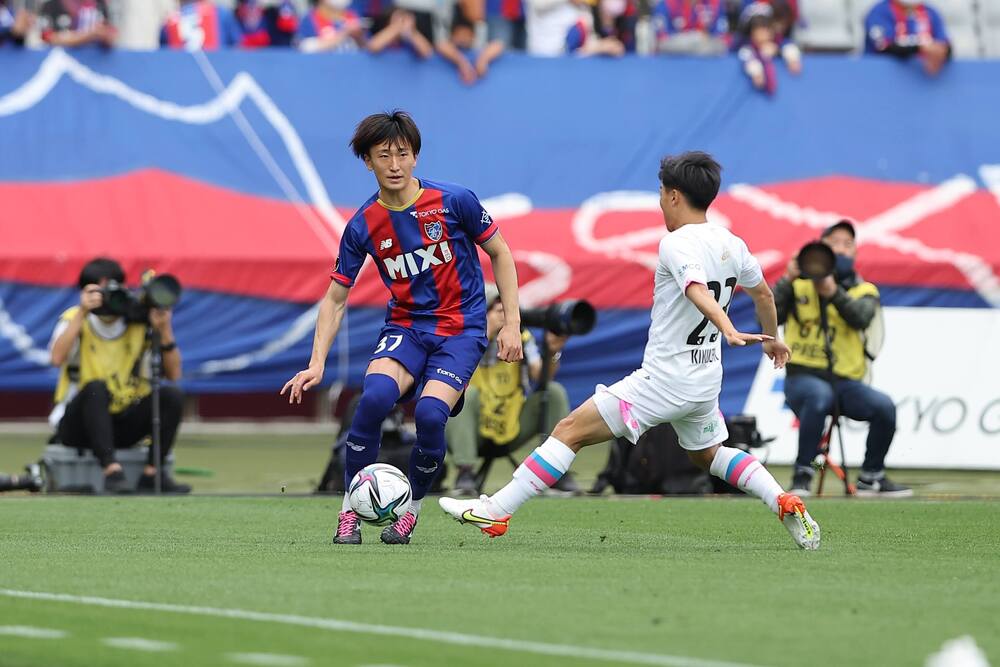
"In positional play, it is important to maintain possession of the ball, but it is not positional play for the sake of positional play, it must be ball possession for the purpose of scoring points. In order to do that, we have to take risks and play attacking football at some point. I don't think the opponent would mind. I think that is the wall we are currently facing."
In order to take risks and achieve success, you cannot take action without trust. Otherwise, that choice is nothing but a reckless gamble. Positional play for the purpose of scoring also includes risks, so I believe that "trust" should be at its core.
Anyone can be anywhere
There was a good example in the 28th minute of the first half of the Tosu match.
After FC Tokyo pressed, Nakamura confidently delivered a vertical pass with one touch to Kuryu MATSUKI, who had slipped into the center. After securing the ball, he executed a one-two with Leandro, who was positioned diagonally behind to the left, and took a shot. This was blocked by the opponent, but it was a scene where the intention to score overlapped with the play.scene
J1 League Sec. 12 Sagan Tosu vs. Scene of the first half 28 minutes
If I were to carefully drip points from this scene,
・The awareness of Nakamura not letting the opponent's mistakes go unnoticed and the concept of "immediate recovery"
The speed of Nakamura's "vertical pass" that was sent forward with one touch
・"Solid technique" by Matsuki, who stopped the ball while being approached by the opponent
・Leandro's "Positioning" that enabled the one-two play in a narrow central space
・"Breaking the Idea" by Matsuki, who trusted Leandro and initiated a one-two pass
・Leandro's "passing technique" through narrow courses
・Leandro, the left inside half, and Leandro, the left wing, stood on the right side and in the center, respectively, and started to break through. It is a "positional play" that is not bound by the concept of position and is in the right place at the right time.
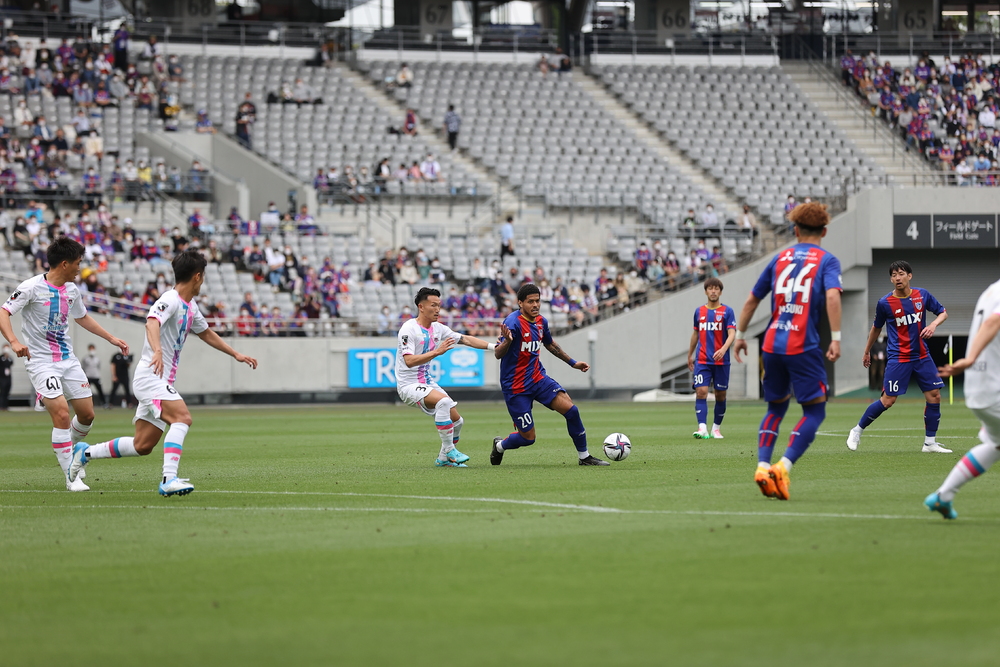
To score a goal, stand in the right place at the right time to move the ball forward, stand in the right place at the right time to break the opponent, and if it is taken away, you can take it back by standing in the right place at the right time, and attack again.
Anyone can be anywhere. In other words, someone must always be in the right place.
There are various strategies to achieve the goal, such as the diamond-shaped positioning created by a triangle and forward-thinking players, which can be seen as a "carefully selected gear", the 5-lane theory for efficient execution, and the "eye" to choose a location while observing the opponent's formation.
But the words that Nakamura asked were heard as an important message to not only focus on the "tool" itself, but also to make sure not to confuse the goal and the means.
So, I may never understand positional play forever. But, I think it's okay. Because I have the feeling of always looking forward and trying to understand it someday.
The journey of constantly seeking luxurious pleasure through the minimal "organization and tidiness" and the hidden ad-libs that are exchanged. Whether on the pitch or from the stands, it may be the essence of positional play to support this positive attitude.
Text by Taiga HIRASAWA (Soccer Magazine Web)


